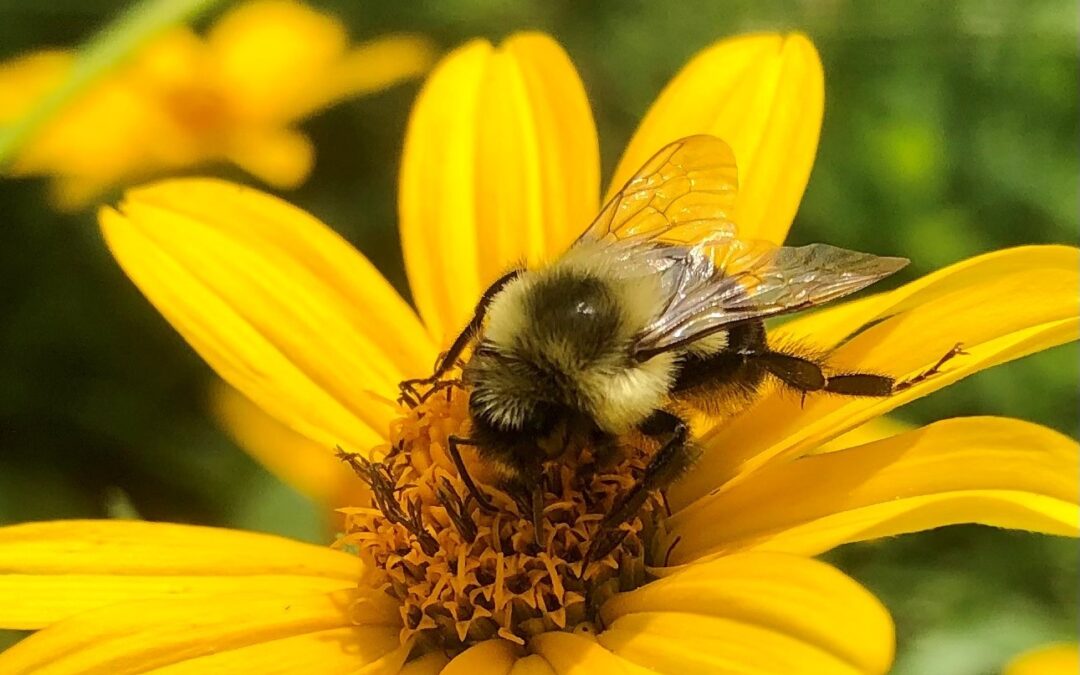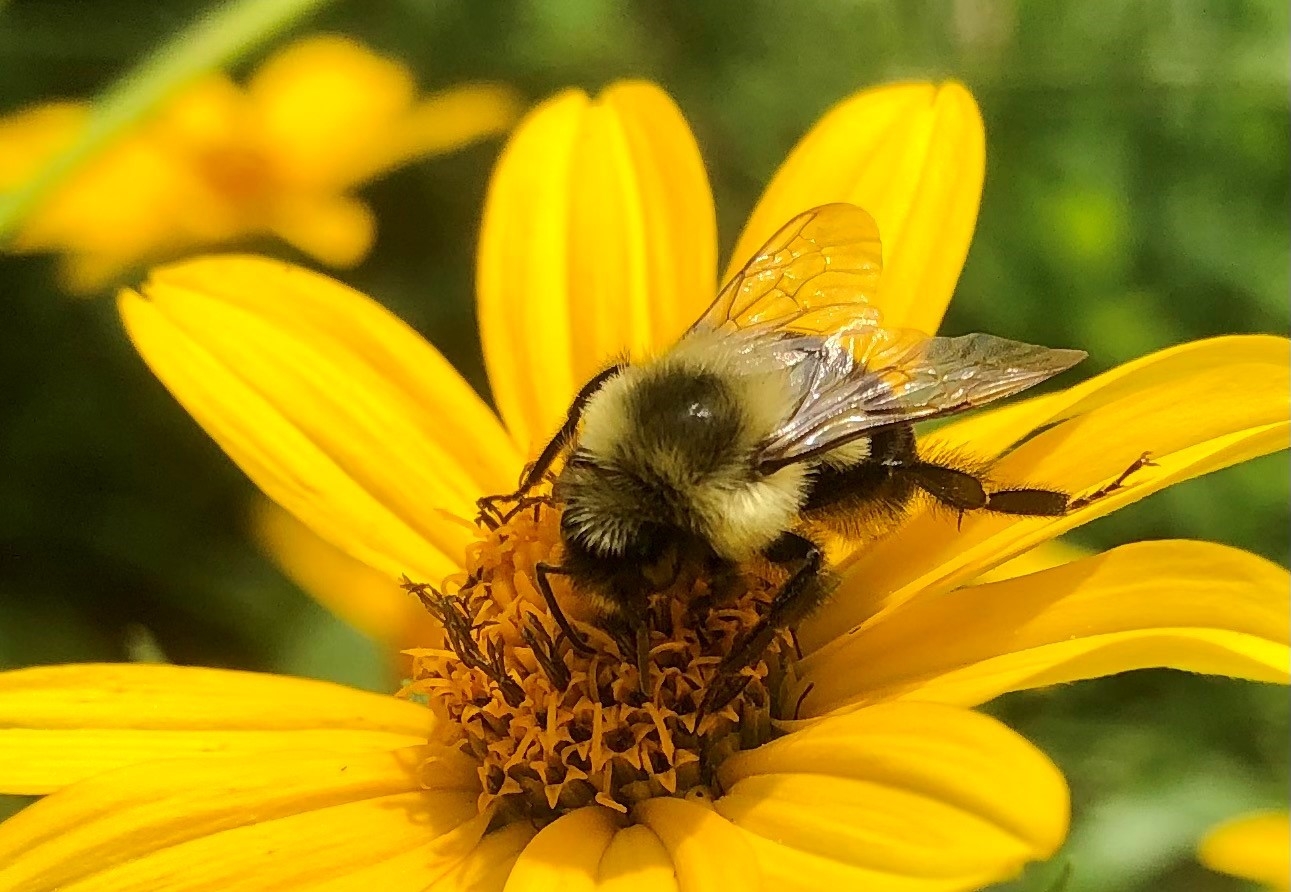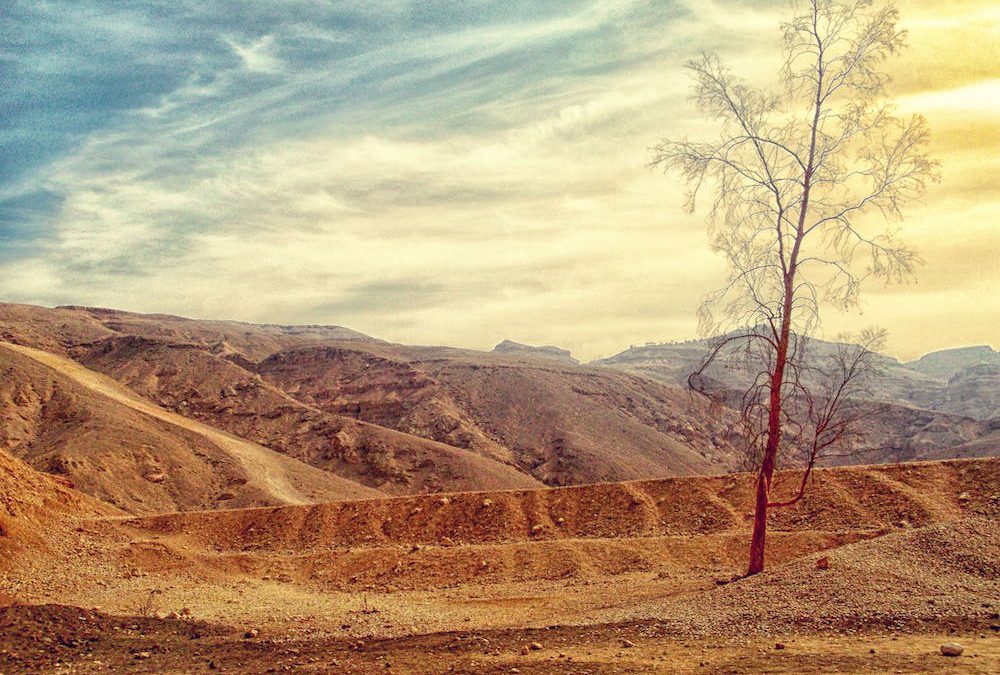
by Lee H. | Nov 23, 2024 | Climate Action Committee
It’s often said that it takes more muscles to frown than to smile. There is an inherent simplicity and ease in smiling. To love, likewise, is simpler than to create distractions from love. Peace, too, is the simple way. Simpler than war, simpler than hate, simpler than the endless desire to dominate that humanity so often displays.
In a world entangled with complex human systems that introduce increasing levels of chaos into our lives, it’s simplicity that offers an appealing path forward. There is wisdom in simplicity, and it calls us to live a life aligned with it.
Instead of structuring our society on tiered systems of wealth or clout, simplicity calls us to seek out ways of living in harmony with our planet and all who inhabit it. We’re interconnected – not only as members of our communities, but also as part of Earth’s broader ecosystem. Our individual and collective actions impact not only our immediate lives and communities, but our planet as a whole. Consumerism – the quest for the newest, the best, the most – diminishes planetary resources while simultaneously increasing pollution and global warming. It also oppresses communities around the globe who struggle under the pressure of exploitative economic systems that prioritize profits over people.
“The Earth is what we all have in common.” That’s Wendell Berry, the farmer and author, speaking to finding unity in the power of each other and our Earth. We are interdependent; no one is complete apart from the rest. How often and how deeply do we acknowledge our beautiful, sacred connections?
Buildings may crumble into the rising seas or human wars. Yet nature endures – a powerful force striving always to regenerate and heal. When we side with the power of nature, the effects can be impressive. One vivid example is the resilience of mangrove forests. After deforestation, corridors of mangroves along a river can regenerate fully within mere decades. This is a testament to the Earth’s ability to renew and heal itself. When we listen closely, we hear Earth calling us to follow its lead and do the same in our communities.
Continuing Revelation
We have come to understand the importance of native gardening. We appreciate all that happens when nature thrives on its own terms.
And we have come to understand that some people are not to be owned, controlled, resocialized, or exterminated by others. We now know the Doctrine of Discovery was a profound mistake, advanced by European settlers who misused religion to justify it. Continuing revelation brought us to understand and support reparations for those our ancestors have exploited.
Will we similarly come to rue humanity’s systematic exploitation of living communities beyond our species? Given that we have no b iological need for this habit, is it, too, relinquishable? Imagine how different, how much freer, our living Earth would be if we stopped chasing, confining, and commercializing other beings—and if we simply grew food, not feed. This would support a resurgence of biodiversity and help us coexist with Earth’s climate system. It would also relieve some of the least privileged among us from the work of repetitive killing, along with the resultant injuries and traumatic stress.
iological need for this habit, is it, too, relinquishable? Imagine how different, how much freer, our living Earth would be if we stopped chasing, confining, and commercializing other beings—and if we simply grew food, not feed. This would support a resurgence of biodiversity and help us coexist with Earth’s climate system. It would also relieve some of the least privileged among us from the work of repetitive killing, along with the resultant injuries and traumatic stress.
As inhabitants of Earth, we are given a sacred calling – to sustain our world and all its living beings. As Earth itself teaches us, the best approach is not domination, but simplicity.
We’re part of this society, yet also of Earth’s web of life. We imagine how much better we could be at sensing this, and how soon the results could be observable, and what a relief it would be to see the transformation.
We imagine the type of world we could inhabit if we, both environmentally and socially, truly embraced simplicity, solidarity, and love. By treating all living communities and our planetary systems with respect, we could foster societies where division, war, and strife are replaced by peace. For peace is a principle that promotes love over division, and solidarity over hierarchy.
We thank you so much for reading this far, and look forward to connecting with those who feel called to contribute to the urgent work of our time. Our Climate Action Committee is advancing dialogue to inspire actionable commitments to a more sustainable and equitable humanity. We’re eager to explore our transformative potential together.
By SJM and Lee Hall
Climate Action Committee
—
Photo credit: Vincent M.A. Janssen (Pexels/Canva).

by Lee H. | Feb 8, 2024 | Climate Action Committee

Today we’d like to talk about a good starting plan for landscaping modification, with some observations from Doug Ross, who is offering vital know-how and experience.
This task is important to do, and it will bring rewards. Here’s why.
The Climate Action Committee notes Pennsylvania State Representative Melissa Shusterman’s proposed “Lawncare Taskforce to Combat Emissions.” As an aside, can we find less bellicose vocabulary? It seems our society wants to combat or to war on something to prove we take it seriously. As a matter of peace-seeking, we want to work with and preserve our climate to the extent possible, not fight its attempt to seek balance, right?
OK, back to the matter at hand.
A few weeks back, rep. Shusterman wrote in an email blast: “Did you know that operating a commercial gas leaf blower for one hour releases the same amount of air pollution as driving a car for 1,100 miles?” PennEnvironment’s recent study on the impact of leaf blowing came out with “staggering” data that prompted Shusterman’s mission “to phase out gas-powered equipment without impacting businesses and jobs”—a mission that Radnor Meeting could get behind.
A Radnor Meeting Pollinator Patch: Less Gas, More Bees
The Landscape Committee has been communicating about creating a beautiful demonstration wildflower patch. A starter wildflower garden will benefit pollinators and effectively absorb storm run-off.
Keith suggested a modest strip along the playground fence, visible on a walk to the First Day School and Montessori School.
Doug intends to put leaf cover on a small patch, and carry out early care and perhaps a bit more planting, perhaps in collaboration with Main Line Montessori.
As this unfolds, we can project the work through social media, maybe even for the Radnor Township newsletter…And we can keep our sights on a local Eco-Friendly Yard award to bring attention to our work and the township’s. Surely the township should be encouraged for what it’s trying to do.
Phasing Out the Mower
About getting past the leaf-blowers and lawn chemicals, Doug says:
The best solution is to turn most of your lawn into a no mow zone, meadow or best of all into a wildflower preserve. Ironically, the wildflower preserve turns out to take the least amount of time and energy in the long run when compared to all the alternatives—including regular lawns. Here I must emphasize the LONG RUN since properly establishing an attractive and functioning wildflower garden requires care and attention in the first year. Usually it takes a couple of years for the plants to develop a deep root system and to become thick enough to prevent space for weeds to invade. After becoming established the wildflower plot is very low-maintenance.
Great to know what we’ll be looking at. This plot will need to be mowed only once a year (probably after the birds have taken advantage of the seeds over the winter), explains Doug.
Doug plans to bring a mix of resilient wildflower seeds designed to blossom from late May to October. Doug is asking for a helper and a small load of mostly weed-free topsoil.
“Thanks for spreading the word about the importance of fall leaves!” writes Doug. Take a look at the great synergy with Doug’s work at Foulkeways:
Our Environmental Stewardship Committee here at Foulkeways is making some progress in spreading the “Leave leaf lie philosophy” as well as expanding our no mow zones, meadows, wildflower gardens, and “Tiny Forest” areas (that rely on leaf mold mulch until our ground covers are well established).
The Year of the Dragon could be a great one for environmental awareness at Radnor. Let’s go!
On 8 Feb 2024, Doug sent this update:
After consulting with Keith, we agreed that I could establish a small demonstration wildflower patch outside the playground fence. About a month ago, my friend and Foulkeways neighbor, Mary K. Lyman gave me a ride to Radnor (on her way to visit a nearby friend). I proceeded to remove the turf and weeds from an approximately 2′ by 8′ strip. I hauled the turf and weeds down the hill to the woods, spread out the material and covered it with leaves. I mixed in a bucket of compost from Foulkeways and a few buckets of loam that I dug out from under the leaf piles in the woods. I raked out the area carefully and spread a mix of perennial wildflower seeds that are endemic (native) to this region. Then I spread some shredded leaf mulch over the whole area. Even though the area is nestled in a line between two groups of shrubs, I pounded in stakes to which I tied a green string to signal the mowers to stay out until early next spring (for the annual mowing). In any case, I believe Keith has informed the landscape contractor to avoid mowing the designated area until next spring. I completed my work by weeding the nearby beds.
Knowing that in the first season, perennials put more energy into establishing roots than putting out blossoms, I returned last week and sprinkled two types of seeds from self seeding annual plants. This will ensure color in the first season. While I was there I noticed the string had been cut and one of the stakes fell down. I repaired the damage, but hopefully someone who is more local can bring a heavier mallet or hammer to pound the stakes down more firmly.
The seeds will scarify during the remaining cold weather and should germinate after an extended warm spell heats the soil. After the plants have grown several inches, the plot will benefit by fifteen minutes or so of weeding. Hopefully the spring rains and nourishing soil will produce a pleasing display for humans, but more importantly a haven for pollinators.
One final note is the distinction between wildflower garden and meadow. Generally weed/turf removal is more thorough when establishing a wildflower garden. However, the biggest difference is that the higher density planting of colorful wildflowers can be expected to require less maintenance to keep out invasive weeds than is the case for meadows. My hope is that the learnings from this project will guide Radnor Friends to find ways to replace lawn areas with more ecological uses.
Blessings
Doug
[Banner image: Bumble bee on bright yellow wildflower in a Pennsylvania meadow, by Lee H.]

by Lee H. | Jun 18, 2023 | Climate Action Committee
Contemplating the phrase “I could never give up __________.”
In a materialistic society, in a complex, profit-driven social system, when we give something up, people think we enter the process of loss. Or the process of turning away from something or someone.
It’s a gift when they ask (even silently) what we are turning to. The question can open an exploration of simplicity.
Perhaps the giving-up is done because the thing has harmed our world, our basic support systems, the web of life that includes and sustains us.
What if the Giving-Up Isn’t a Choice, But an Action We Are Called to Take?

No question: There is stress and anxiety in the decision to relinquish it. Yet the inner self has reached a point where release is relief.
Release of something that’s a good thing to have in a strictly individual way: Is this giving up? Or is it an act of becoming?
The ability to give something up, itself, is a good. Giving up, when we’re called to do it, can mean up-lifting. And then, giving up becomes a giving to Spirit.
Photo credits: Bru-nO and RitaE, on Pixabay.

by Lee H. | Feb 21, 2023 | Climate Action Committee
In February, the Climate Action Committee at Radnor Meeting presented the following at the hybrid Meeting for Worship With Attention to Business. Our next committee meetings will be on the further work we are doing surrounding EMERGE. Drop a note in the comments if you have thoughts or want to be in the committee’s e-loop.
***
“We seek an earth restored.”
EMERGE
A Work in Progress, by the Climate Action Committee, Radnor Monthly Meeting, Villanova, PA
WHY “EMERGE”? INTRODUCTORY NOTE
The Climate Action Committee at Radnor Meeting believes that Quakers are called to think globally and act in community, as we acknowledge our personal and collective responsibility for the global environmental crisis. This crisis includes the global heating driving climate change, which affects all people and all living communities of Earth.
To address this, we learn, we grow, we act, and we educate in several key areas: energy use in our buildings; care for our grounds; mindful diet; and transportation policy and practice.
We seek to contribute to a robust human effort to address this crisis on multiple levels:
- Individual;
- Monthly Meeting;
- Broader, interwoven Quaker communities including those dedicated to Earthcare and Ecojustice; and
- Interfaith communities;
- Governmental–exerting pressure for state, national, and international policy and action.
The Quaker SPICES Testimonies further our discernment. Yet there is a specific urgency in sea level rise, ocean acidification, extreme heat and wildfires, loss of rivers and agricultural productivity, loss of homes, degradation of oceans and waterways, extinctions and the loss of habitats. And this urgency speaks to the importance of creating and living a set of values specific to our global environmental crisis.
As the acronym SPICES guides spiritual attitudes and engagement, the acronym EMERGE can guide discernment as we learn to avoid doing further anthropogenic damage, and as we live in right relationship with Earth’s finite components and its natural balance. The values that make up EMERGE are:
- Empathy;
- Mindfulness;
- Ecological Integrity;
- Right Action;
- Growth; and
- Endurance
Ultimately, we envision a spiritual emergence. We strive to help humanity, too, emerge from this critical era as a community that can live in harmony with our planet and respect for its systems and all its precious life.
EMERGE
Empathy is a bedrock of our shared values in climate ethics. Empathy leads us to appreciate how we’re embedded in life, our human community, and our greater biological community. Our empathy is strong—and leads us to commitment.
Mindfulness is the active practice of bearing witness. It is our continuing awareness of the impact of what we do, and what we refrain from doing, across systems, across time, across communities, and throughout the web of life. It includes a willingness to simplify our lives, with attention to details, follow-through, and support for each other’s efforts.
Ecological Integrity is our connection, our sense of community and oneness, with all beings and all systems we affect and in which we exist and live and move. It is our recognition that we are one with our ecosphere, not separate. We are responsible for acting in a way that respects natural evolutionary processes and promotes the health of Earth and its magnificent, intricate systems. Moreover the value of integrity speaks to the importance of attention to doing what we say and to acting on what we understand. And to the importance of bringing our values into the world.
Right Action follows from courageous discernment of how best to act in accordance with climate ethics, including refraining from action. It embraces the urgency of now, and manifests in principled leadership. We understand that our environment is shared by all; so are the impacts of our actions. The fruits of our world grow for all. It is important to affirmatively include future generations of all living beings in right action. It is also important to affirmatively include historically exploited, financially and socially isolated, and otherwise vulnerable human communities. These groups are currently bearing and will continue to bear the harshest impacts of climate breakdown. They will be first to lose their homes and their dreams to the chaos driven by the profit-chasing and the complacency in wealthier regions.
Growth pertains to our spiritual evolution. It includes a willingness to engage in deep listening, to learn from errors, and to strive for, and act upon, new understandings and continuing revelation. Potential for growth relies on a willingness to challenge hierarchies within humanity (examples: male supremacy, white supremacy, war, or the colonizer’s mindset), and beyond (for example: human supremacy); and the humility to recognize our own limitations. We can’t fix the evolution that we’ve broken, or bring back decimated cultures. But we can interrupt the continued pattern of dominion, hierarchy, inequality, land-grabbing, and exploitation. We can grow, and we can act.
Growth appears in our willingness to share the fruits of our planet with all inhabitants while sacrificing personal wealth and comfort for the sustainability of our world (“living simply, so others may simply live”).
Endurance is the courage to passionately persist in the face of apparently impossible odds and devastating consequences. To be led by the wisdom of Spirit. We might not witness the fruits of our work, but we know those fruits will grow from the seeds we plant at this moment.
INTENT: THE EMERGENCE OF AN AUTHENTICALLY SUSTAINABLE HUMAN COMMUNITY
It’s natural to want to turn away from anxiety-producing information. The problems are so big, complex, entrenched. If we can change our focus from what is convenient for us – from doing what we now do to what we are capable of doing – to living as part of our glorious natural system, we can feel safe and confident working in harmony with our environment, rather than selfishly exploiting it. We can become spiritually resilient through the knowledge that this harmony is our touchstone.
We believe emergence from humanity’s destructive patterns requires spiritual growth. And spiritual growth helps dispel our anxiety, allowing us to live in harmony with our Earth.
Beneficial growth enables us to understand ourselves; to remember what we have done that has harmed or excluded the experiences of others outside what we’ve defined as our groups. It enables us to transcend aggressor and dominator habits; to learn to live within our ethical means on a finite planet; to understand that what Earth produces are not humanity’s resources alone; to seek the fullness of life in simplicity; to heal, soothe, and fortify ourselves; and to do our best to emerge from an existential, human-driven crisis with integrity… to love, deeply and infinitely.
***
Several Friends kindly reviewed EMERGE and sent their suggestions and thoughts about this effort. One correspondent expressed being heartened to know that Radnor Meeting is “truly under the weight of” the climate emergency and the concern that Quakers forge a touchstone response. Thoughts from other Friends:
“Wow, this is a great idea! I love how you use the word EMERGE, signifying a transformation or emergence from our current state to a new way of living. And then take each letter and have it progress from empathy, mindfulness, and ecological integrity, to right action, growth, and finally, endurance. It’s a beautiful statement of values. There is so much wisdom in this approach.”
“I hope that when you finish this work, Radnor will share it within the Quarter as a minute for other Friends to consider.”
“I am very impressed by the statement. I have read it slowly and thoughtfully four or five times, and believe that it is important for Friends to do that, to absorb and consider the content. I agree that it can be a vehicle for ethical and spiritual progress. I was struck by how carefully the words and concepts were chosen to lead the reader in self-examination. At least, that was true for me. I believe all Friends should read the statement, and hopefully be moved to self-reflection and action as I was. I want to recognize and encourage the valuable work of the Climate Action Committee.”
____
Banner image by Marta Ortigosa, via Pexels.

 iological need for this habit, is it, too, relinquishable? Imagine how different, how much freer, our living Earth would be if we stopped chasing, confining, and commercializing other beings—and if we simply grew food, not feed. This would support a resurgence of biodiversity and help us coexist with Earth’s climate system. It would also relieve some of the least privileged among us from the work of repetitive killing, along with the resultant injuries and traumatic stress.
iological need for this habit, is it, too, relinquishable? Imagine how different, how much freer, our living Earth would be if we stopped chasing, confining, and commercializing other beings—and if we simply grew food, not feed. This would support a resurgence of biodiversity and help us coexist with Earth’s climate system. It would also relieve some of the least privileged among us from the work of repetitive killing, along with the resultant injuries and traumatic stress.



























